- Home
- Deborah Smith
On Grandma's Porch Page 2
On Grandma's Porch Read online
Page 2
The route along I-20 was appropriate, considering Eisenhower had started the interstate road system, and he’d been a soldier like my dad. I wondered what Eisenhower would think of interring a soldier twice—a soldier with a full beard, buried in his dress uniform without his medals. At my uncle’s urging, I removed them before we closed the casket.
Our request to move his body wasn’t as unusual as I’d thought before embarking on this strange quest. Mom’s family agreed with me that it was well worth the money to try to make her happy. They knew as well as I did that if I didn’t at least try, there would be no peace for the living.
A thought paralyzed me for a second or two. What if Dad wasn’t where we thought we’d put him? Mom hadn’t ever bought the marker.
Worse yet, what if they dug up the wrong body? They could get confused since my dad’s body wasn’t the only one in my great-great-grandmother’s plot without a marker.
Visions of the truck losing the vault and hitting the hearse with my Dad’s casket inside flashed through my mind as well. And the potential news bites—Dead Man Dies Again, Imperishables Wrecked on I-20. Considering all the formaldehyde in him, he probably didn’t look too bad. Except for the Mohawk.
The mortician who worked on my dad did a great job except he parted Daddy’s hair on the wrong side. It drove me crazy during the viewing, and I just couldn’t have my father buried with his hair wrong. Failing to factor in the copious amount of hairspray, I tried to fix it. His comb-over stood straight up like a Mohawk.
I decided I wouldn’t mention my worries to my mother. She didn’t need to be any more upset than she already was, and I didn’t need the stress of her emotional upheavals compounded with interest.
Finally, a man from the Rutledge Cemetery, who had an accent much like my mother’s, returned my call. “Mr. Thackery,” his gravelly voice drawled, “if you want him buried on Sunday, there’ll be an extra charge.”
“Why?” I asked.
“It’s the Sabbath. We’ve got to pay overtime for the workers.”
“Any other holy days cheaper?” I asked, hoping the man had a sense of humor. “How about Friday night?” Which might be the Jewish Sabbath, but Dad had always felt an affinity with the Jews. He’d never failed to praise them in his Sunday school days.
“I don’t believe there are other holy days, Mr. Thackery.” The man must be a Southern Baptist.
“Okay, fine. Sunday it is, then. I’ll send the check.” I put the phone up and found my mother watching Wheel of Fortune in the den.
“Mom, Dad’s all set to go.”
A smile lit her face. A sparkle returned to her pale-green eyes. I was the good son again.
“Where’s our plot?” she asked. “Near Mother and Daddy?”
A few days earlier, I had purchased two plots yet had delayed in telling Mom where they were.
I’d have to spoil my moment of triumph. “I couldn’t purchase plots for both of you in the old part of the cemetery.”
Her upturned lips flattened into a tight, thin line. “But I want your father to have a monument, not one of those brass doormats they mow over.”
“Some of those plaques are nice. They even come with urns for flowers. Besides, there aren’t spaces in the old part available. It’s not like I can move the bodies that are already there.”
“It’s not what I want, but at least he’ll be . . . home.” Mom started crying again, softly, which tore me up more than her usual loud bawling. My wife shook her head at me.
I knew what she was thinking. I couldn’t win.
Now that moving day was imminent, I also had to argue with the cemetery director about which side of Dad and Mom’s double plot Dad would get. Mom wanted him in the ground the way he and she had slept, which I came to find out was opposite most of the rest of the world. My dad preferred sleeping on the right, my mom the left.
Mom picked out a double brass plaque for them, which had a nice urn in the middle. My wife started on a beautiful silk arrangement for it, which pleased my mother to no end.
Another minor glitch arose when I discovered the one person Daddy disliked most in Rutledge was buried in the same row I picked. I guessed my father would have to roll over in his grave so his back would be to Cleetus. Cleetus, who’d never seen any action in Vietnam beyond a filing cabinet, whose only injury might have been a paper cut, had come back and claimed disability due to the war. Everyone in Rutledge had gone along with the lie, which had only added to Dad’s contempt for the town.
Wait a minute. Daddy was dead. Why should he care that someone he’d hated was in his row? By next week, he’d be where Mom wanted him. Whether he would have liked it or not was beside the point. He was beyond aggravation.
Unfortunately, I wasn’t.
“Clay,” my wife whispered in my ear, about a week after the reburial, which went well, all things considered. No accidents on I-20, and Mom still liked the brass plaque she picked out at the monument store. I suspected the ease of the move was too good to be true, and I was right. Hannah nudged my shoulder, forcing me from a warm, sound sleep. “Clay!”
“I’m sorry,” I said reluctantly, assuming I’d been snoring again. I rolled over.
“Clay, wake up.”
“What?” I lifted one eyelid and peeked in her general direction. “What’s wrong?”
“I smell cigarette smoke.”
I squinted at the digital alarm clock, not that I could see it. I’m blind without my glasses. “What?”
“I smell cigarette smoke.”
I sniffed, smelling nothing. “It’s probably someone burning leaves, and the scent’s drifting in from the window.”
“The window’s shut,” she said.
Being the good husband that I am and wanting to prove my wife wrong so as to gloat, I moaned then dragged myself out from under the warm flannel sheets and heavy quilt and put on some pants and my glasses to search for the phantom smoker.
The carpet muffled my steps as I walked through the house. Mom was in bed. The front, back, and basement doors were locked. No cigarettes, no cigarette packs, no cigarette butts, ashes, or smoke to be seen anywhere. I even checked the old ashtrays my mom kept.
My wife’s active imagination was at work again.
I returned to bed and hoped I’d get a few hours of sleep before work. My wife, however, wasn’t through with her torment.
“It’s probably your Dad,” she said. “I don’t think he’s happy.”
“Let me get this. Dad, being an atheist, finds it too difficult to haunt me, also an atheist. So he chooses to haunt you, my Catholic wife, a woman he never met?”
“You’re going to have to appease him in some way,” she said.
“Yeah, right. And you think Mom is crazy.”
When it came to pacifying my father, my wife had an idea, not that I would admit to her that I smelled the smoke, too, or what was worse, that I’d heard the second prong of attack that had started several days after the first. Someone or something was walking along the upstairs hall in the wee hours.
I told myself that was nuts. Houses creak at night. But what about the continuing scent of menthol cigarette smoke? Well, I couldn’t explain that, nor did I want to. It might upset my atheistic equilibrium. If you don’t believe in life after death, how can your father haunt you?
Whatever was causing that smell lingered in the house like burnt biscuits for weeks after his reburial. I kept telling Hannah it was her fertile imagination. She writes novels in her spare time, and I’m hoping I’ll be a kept man some day—once she rakes in the royalties.
Mom didn’t smell the cigarettes or hear the footsteps in the hall at night, which meant, in my wife’s on-going opinion, that Daddy was still trying to haunt just me. He knew who’d done the dirty work. I couldn’t help but feel that in making Mom happy, in be
ing the good son to her, I’d somehow now failed in being a good son to my father.
I should have taken this opportunity to have him cremated and just have the casket buried without him in it. Who would ever have known? I should have ensured his wishes were respected, but it all gets so complicated when a person dies.
Thinking their wishes will be honored, people make elaborate plans, but what about those who are left to carry on? You’ve got to respect their wishes, too.
My father’s mother, who never expected to outlive any of her children, was raised Baptist. She was devastated when her firstborn died, though she’d tell you she wasn’t the type to go to pieces. The idea of cremation horrified her and the rest of the family. Should I have made my Dad, who was gone, happy at the expense of his own mother?
That’s the problem with being the good son and the good grandson. I couldn’t make everyone happy. I still can’t.
It had been three weeks since my dad’s big move, and my mom wasn’t even happy. Now, she cried that he didn’t have a monument. She obsessed about how she’d wanted him to be buried in the old part of the cemetery and that I had forced her into the brass plaque.
When I came home from work one day, I could tell she’d been crying again. Her eyes were red rimmed, and she was clutching the tissue box. I suspected it wasn’t just because she’d burnt dinner. I wanted to believe Mom’s bad cooking created the cigarette smell and that Mom had thrown the evidence of the ruined dinner in the trash.
“What’s wrong now?” I asked.
“How do I know they dug up the right man? What if those people took the wrong vault? I could spend the rest of eternity buried next to Mr. Jurgen. And your father would be in Augusta.” Her last word ended in a high-pitched whine.
It wasn’t that Mom didn’t like Mr. Jurgen. She did. He was a laborer who’d worked for her great-grandmother. They’d buried him in the family plot even though technically he wasn’t family.
“Mother, you’re just going to have to trust these people. I draw the line at exhuming Dad’s body. I’m not opening that casket. Besides, Mr. Jurgen most likely didn’t have a vault.”
“I should have just left your father in Augusta.” She dabbed her eyes with a tissue. “Why did you let me do this?”
Buyer’s remorse of a magnitude I’d never expected.
“Well, I’m not moving him back,” I said.
“Why not? It’s my money.” Mom marched back to her room and slammed the door, then opened it to give it a second slam for good measure.
When my wife arrived home and I told her the latest installment in the burial saga, she refrained from reminding me she’d told me so. I appreciated that.
She sniffed the air, too, saying nothing. I knew what she was thinking. The cigarette smell was back.
“Mom must have been cooking before I got home,” I said.
Hannah arched an eyebrow. “Really?”
“Rolls, I think.”
“Your mother doesn’t cook anymore except for Thanksgiving,” Hannah said. “And when she does, it’s Jell-O fruit mold, which doesn’t smell like cigarette smoke at all.”
“So maybe she burnt some toast.” I wasn’t going to admit to Hannah that the smoky scent was more tobacco-like than bread-like.
She smiled. “We can buy some vodka and sprinkle it on his grave this week. Maybe he’ll stop.”
“Any ideas on what we can sprinkle on Mom?” I asked.
I stubbornly refused to go along with the appeasement of my father’s ghost, but I suspected my wife would pretty much do as she pleased. She can be stubborn, too.
When she told me she was going to be especially late getting home from work as opposed to her usual late, I knew something was in the works. She taught composition at the university in Athens, and sometimes she came home well past quitting time due to meetings or paperwork, but I’d seen the brown paper sack from the package store in her car when I’d scraped the frost from her windows that morning.
I figured clearing her windows was the least I could do since my dad was haunting her.
As I suspected, her late meeting was in the Rutledge Cemetery.
In the twilight, I pulled my sporty SUV behind her car and cut the engine. I got out and shut the door gently. Leaves crunched under my feet as I walked to where she stood, waiting for the last vestiges of sunlight to fade from the sky.
No need to let the people in the houses across the street in on what she was doing.
The monument’s brass urn was empty. So much for the silk flower arrangement Hannah had made. She’d chosen a red, white and blue theme for my career-army dad. My great-aunt had contributed a small American flag, and damned if it wasn’t gone, too.
“Just look,” Hannah said, pointing to the empty floral foam cone riddled with holes. “Who would be so callous as to steal flowers from your father’s grave?”
“I don’t know. Maybe a person who had an empty spot on his mantel?” I looked around in the dwindling light to see if they were in someone else’s urn nearby. When presented with a problem, I try to fix it. I’m trying to be a good husband, too. “All the other bouquets seem to be in place,” I said. “I guess our thief was a patriot.”
“Well, I’m putting barbed wire in the next one, that way it’ll cut their fingers when they go to steal it.”
I love how she gets so indignant.
“It’s probably for the best that the bouquet is gone,” I said. “My dad didn’t like flowers much. They reminded him of funerals.”
Hannah tried not to laugh at my feeble joke, but as usual she didn’t succeed.
“What’s in the sack?” I asked.
She smiled. “As if you didn’t know.”
The lights came on in a small house across the street. Unaware of the peace offering about to take place, the people who lived in that house were moving on with their evening, preparing dinner, watching TV.
Hannah pulled a half-gallon jug of Smirnoff vodka from the bag. When it came to quantity, she wasn’t messing around with pleasing my father’s ghost.
“Should I do the honors, or you?” she asked.
“I will,” I said. “You do have the orange juice to go with it, don’t you?”
“Nope, sorry.”
Maybe he wouldn’t mind.
As I unscrewed the cap, the barely there scent of this liquor reminded me of my dad and how vodka had eased him through his post-traumatic stress disorder and, later, retirement. We’d had good times and bad. “Good” being chats on the phone about my golf game (hole by hole), when I was in college, rough-housing when I was a kid, the years we’d spent in Germany. The bad times being the years he was in Vietnam, and I could only hear his voice on reel-to-reel tapes he’d send us—none of which I had kept, now that I couldn’t remember what he sounded like.
I’d found his letters from Vietnam, both tours, in Mom’s old suitcase in the basement, and I’d started cataloging them. His narrow scrawl proved how much he’d loved and believed in me, believed I’d do great things. He somehow thought I’d one day grow up to be President. I guess being a government bureaucrat wasn’t too far from the mark.
Had I been a good enough son to him?
While I poured the elixir he’d needed onto the grave, I got my answer. An overwhelming sense of tranquility came over me.
Yes, I was a good son.
His spirit wouldn’t be angry for long that we’d brought his body back to Rutledge. He’d be glad I was trying to make my mother happy. That is, if I was the kind of person who believed in ghosts, and I’m not saying I do.
I was at peace, and if I was wrong about the ghost stuff, maybe he was at peace, too.
“This should do it,” I said to Hannah as the last drops of vodka hit the sod. I guess he could take it straight, and so could I.
T
he question I began with was this: Can a person use the dead to make the living happy? The answer, I discovered, is no. But there is nobility in trying.
What Grandma Bought At That New Place Called A Shopping Mall
(1970s)
1 carat diamond ring — $300
2-quart pressure cooker — $8
Atari game cartridges — $20
Eight track tapes — $5
La-Z-Boy recliner — $190
Bean Bag Chair — $20.00
Play Doh Fun Factory — $3.00
Sleeper sofa — $300
CB Radio — $150
Clothes Dryer — $220
Polaroid Camera — $18
RCA 23 Inch Color Television — $370
Smith Corona Electric Typewriter — $200
Radio Shack TRS80 Computer —$400
Getting to the Heart of the Watermelon
by Lynda Holmes
“It was not a Southern watermelon that Eve took; we know it because she repented.”
—Mark Twain
Being an only child growing up during the 1950s, I always looked forward to visiting my cousins in a big way. Mama’s folks lived on a farm way out in the Georgia countryside, and a few of my cousins and I managed to convince our parents to let us spend some time there during the summers, “helping” our grandparents with the running of the farm. Besides milking the cows and feeding the hogs each day, we knew we would participate in two other rituals: going to Sunday church meeting and helping harvest (and eat) the farm produce, including Granddaddy’s prime, home-grown watermelons.
Now, Granddaddy’s melons were a delicacy, wetter than a swimming pool on a hot, summer day and sweeter than a ripe peach, and he grew them with yellow meat as well as red meat. People from that community raved about Granddaddy’s melons being some of the best they ever tasted. Our job was to retrieve the watermelons from the patch as needed. Granddaddy let us pick the ripe melons a couple of times each week and load them on his truck to take into town for selling, along with fresh eggs from the henhouse.

 Legends
Legends Hold on Tight
Hold on Tight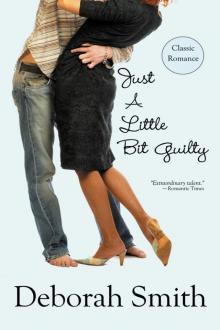 Just a Little Bit Guilty
Just a Little Bit Guilty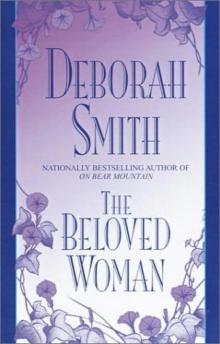 The Beloved Woman
The Beloved Woman Alice At Heart
Alice At Heart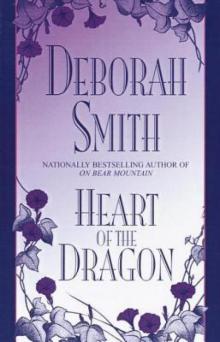 Heart of the Dragon
Heart of the Dragon Critters of Mossy Creek
Critters of Mossy Creek Diary of a Radical Mermaid
Diary of a Radical Mermaid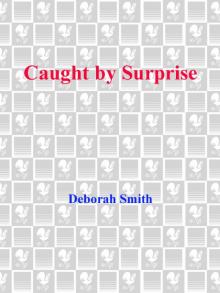 Caught by Surprise
Caught by Surprise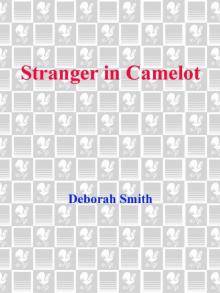 Stranger in Camelot
Stranger in Camelot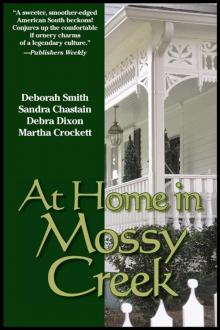 At Home in Mossy Creek
At Home in Mossy Creek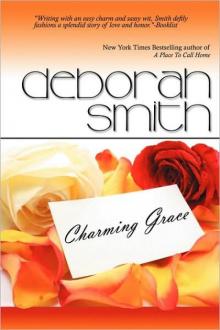 Charming Grace
Charming Grace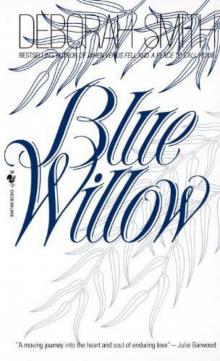 Blue Willow
Blue Willow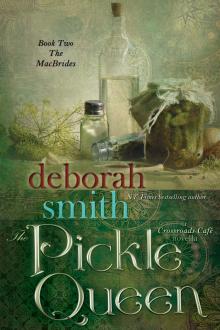 The Pickle Queen: A Crossroads Café Novella
The Pickle Queen: A Crossroads Café Novella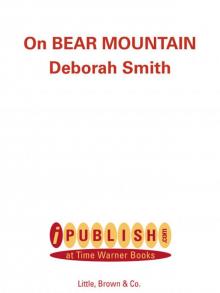 On Bear Mountain
On Bear Mountain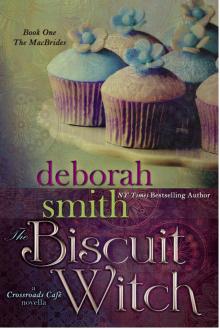 The Biscuit Witch
The Biscuit Witch Sara's Surprise
Sara's Surprise More Sweet Tea
More Sweet Tea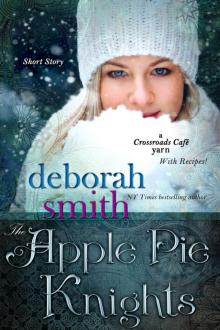 The Apple Pie Knights
The Apple Pie Knights The Silver Fox and the Red-Hot Dove
The Silver Fox and the Red-Hot Dove Sweet Hush
Sweet Hush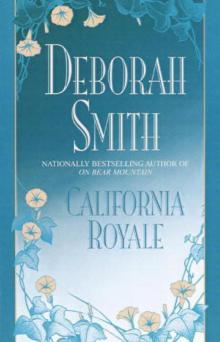 California Royale
California Royale Hot Touch
Hot Touch Miracle
Miracle The Stone Flower Garden
The Stone Flower Garden A Place to Call Home
A Place to Call Home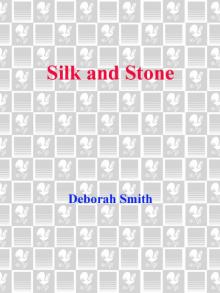 Silk and Stone
Silk and Stone Honey and Smoke
Honey and Smoke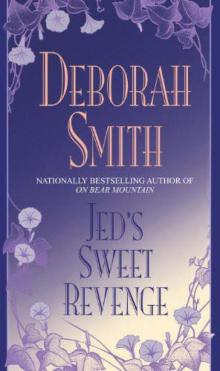 Jed's Sweet Revenge
Jed's Sweet Revenge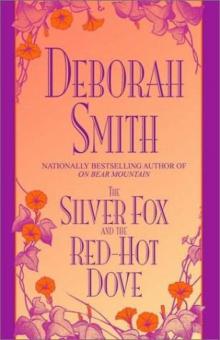 Silver Fox and Red Hot Dove
Silver Fox and Red Hot Dove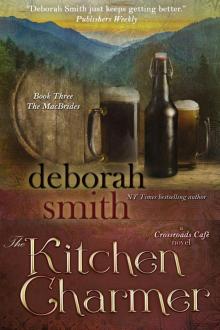 The Kitchen Charmer
The Kitchen Charmer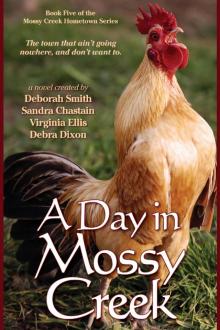 A Day in Mossy Creek
A Day in Mossy Creek Never Let Go
Never Let Go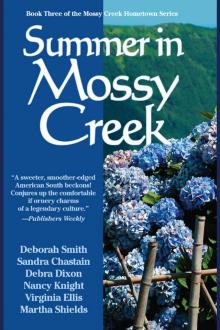 Summer in Mossy Creek
Summer in Mossy Creek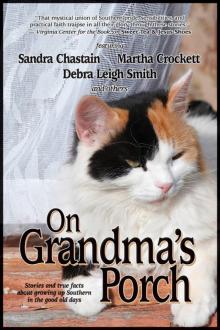 On Grandma's Porch
On Grandma's Porch The Crossroads Cafe
The Crossroads Cafe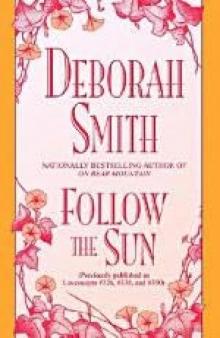 Follow the Sun
Follow the Sun The Yarn Spinner
The Yarn Spinner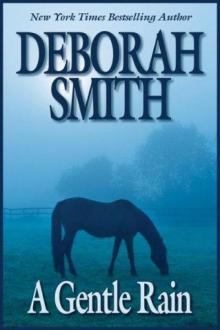 A Gentle Rain
A Gentle Rain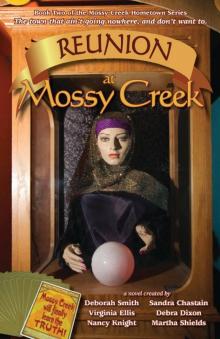 Reunion at Mossy Creek
Reunion at Mossy Creek